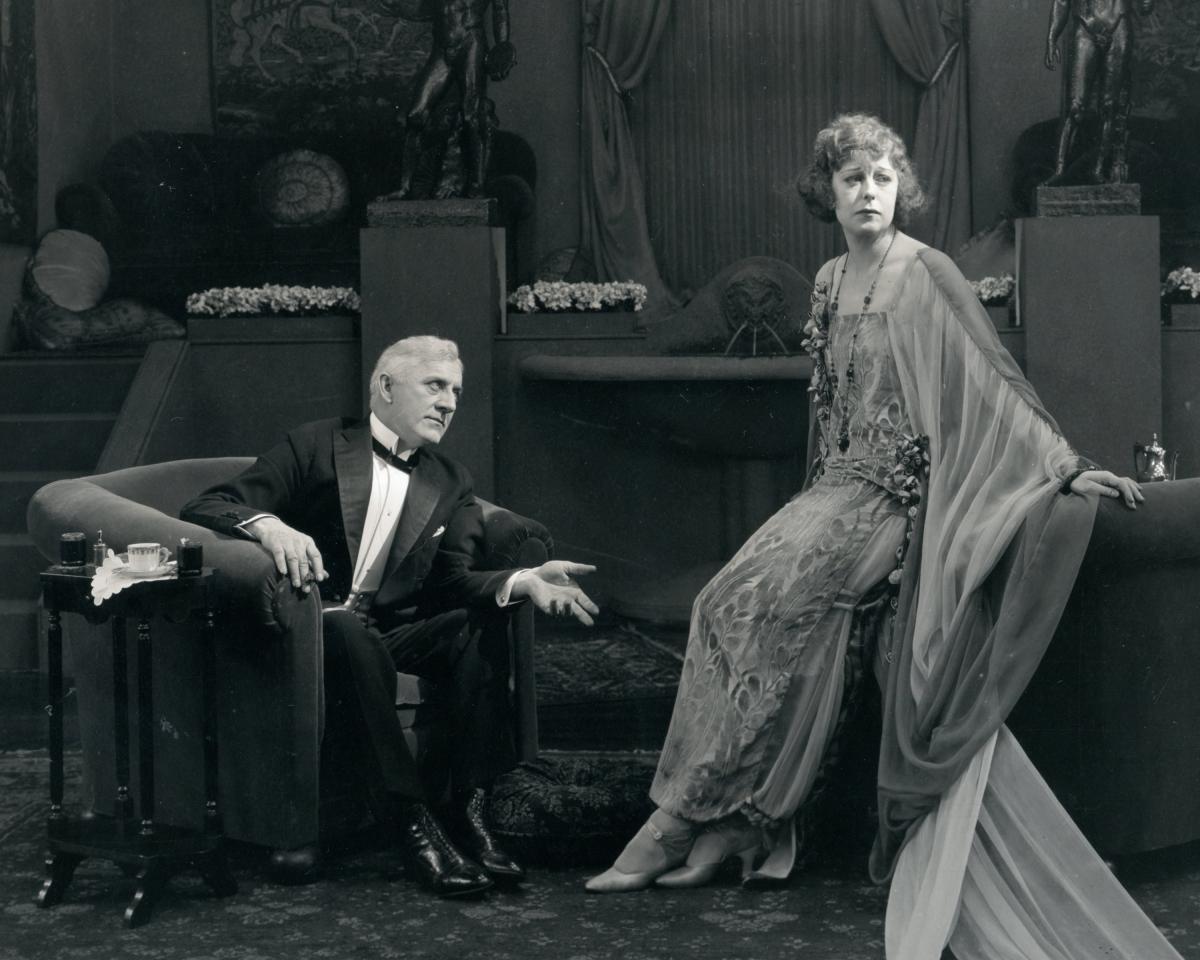Cosmopolitan/Paramount, 1922. Director: Frank Borzage. Scenario: Frances Marion. Camera: Chester Lyons. Cast: Seena Owen, Matt Moore, J. Barney Sherry, Ethel Duray, Charles Craig, Jerry Sinclair.
Frank Borzage is one of those directors who exist in a kind of twilight zone in the annals of film history. His classic films such as The Circle, Seventh Heaven, Man’s Castle, History is Made at Night, and so many others, are so widely admired as to guarantee him a place in history—but his enormous output, in both the silent and sound periods, has made it difficult for most viewers to see more than a fraction of his body of work. Now, thanks to our friends at Undercrank Productions, that undertaking is about to get a little easier. This month, March 2023, will mark Undercrank’s release of a new Blu-Ray featuring restorations of two lesser-known Borzage dramas produced in 1922: Back Pay and The Valley of Silent Men. Both films are restored by the Library of Congress and mounted according to the usual high Undercrank standards.
I’m particularly pleased to see Back Pay because I’ve seen it once before—but that was decades ago, in an unassembled print! All (or nearly all) of the film’s content was there, but the continuity leapt wildly from one part of the story to another, so jumbled as to make no sense at all. (I remember thinking that a better title for that version would have been “Back and Forth Pay.”) For this presentation, needless to say, the story’s continuity has been restored. Moreover, the film is presented in a lovely tinted and toned print that brings out the full visual beauty of the original.
It’s also a pleasure to report that Back Pay, thus reconstructed, is fully worth the wait. It’s an intimate drama based on a story by Fannie Hurst, known at the time as “America’s Sob Sister” for her quietly emotional stories of everyday people going about their lives. In 1920 Borzage had directed a film adaptation of Hurst’s Humoresque, with a scenario by Frances Marion. Humoresque had scored a major hit with audiences, and in 1922 the same triumvirate of talent—Hurst, Marion, and Borzage—was reunited for Back Pay. This film tells the story of a small-town girl who chafes against the small-minded, bucolic lifestyle of her little town and longs for the glamor and luxury of big-city life. Finally she leaves the town, and her patient, faithful boyfriend, behind and makes her move to the city, only to find that city life comes with disappointments of its own. It’s a familiar plot, up to this point. But Hurst’s story was published in 1921, and here it takes an unexpected turn involving the hometown boyfriend’s enlistment in the army and service in World War I.
From there the story proceeds along somewhat unconventional lines, making good use of Borzage’s knack for underplayed dramatic scenes. The late William K. Everson once wrote: “Frank Borzage’s genius has always been in his uncanny ability to wring pathos and emotion from the most commonplace of situations, or to sidestep a cliché and make it seem fresh and human.” Back Pay is a prime example. As in some of the director’s best films, there is intensity of emotion, but no unsympathetic characters; the drama comes not from two-dimensional conflict but from the complexity of human interaction.
In relating this tale, Borzage has the benefit of an excellent cast. The leading lady, the protagonist of the story, is Seena Owen, whose latter-day status is roughly analogous to Borzage’s own: she is both known and unknown. Every film enthusiast knows her from her highly visible role as the Princess Beloved in the Babylonian story of Griffith’s Intolerance—(and Back Pay includes a brief invocation of “Babylon,” seemingly almost an in-joke reference to that famous role)—but her many other screen appearances tended to turn up in minor, low-profile films and are difficult or impossible to see today. Her performance here is pleasingly subtle and nuanced. The role of the long-suffering boyfriend is in the capable hands of Matt Moore, a versatile and underappreciated actor who appeared opposite a wide range of actresses, providing solid performances of his own without upstaging the featured star.
Mention should be made, too, of cameraman Chester Lyons, who frequently worked with Borzage. Lyons’ expertise is on display here in brooding low-key interior shots, along with other subtle photographic effects. And of course the Blu-Ray presentation benefits from a sensitive piano score by Andrew Earle Simpson. All in all, Back Pay and its companion feature, both ripe for rediscovery, are now a welcome addition to any silent-film aficionado’s library. Once again we are indebted to Undercrank Productions, Andrew Earle Simpson, the Library of Congress, and associates for retrieving another precious slice of our film heritage.
Back Pay (1922)
March, 2023

